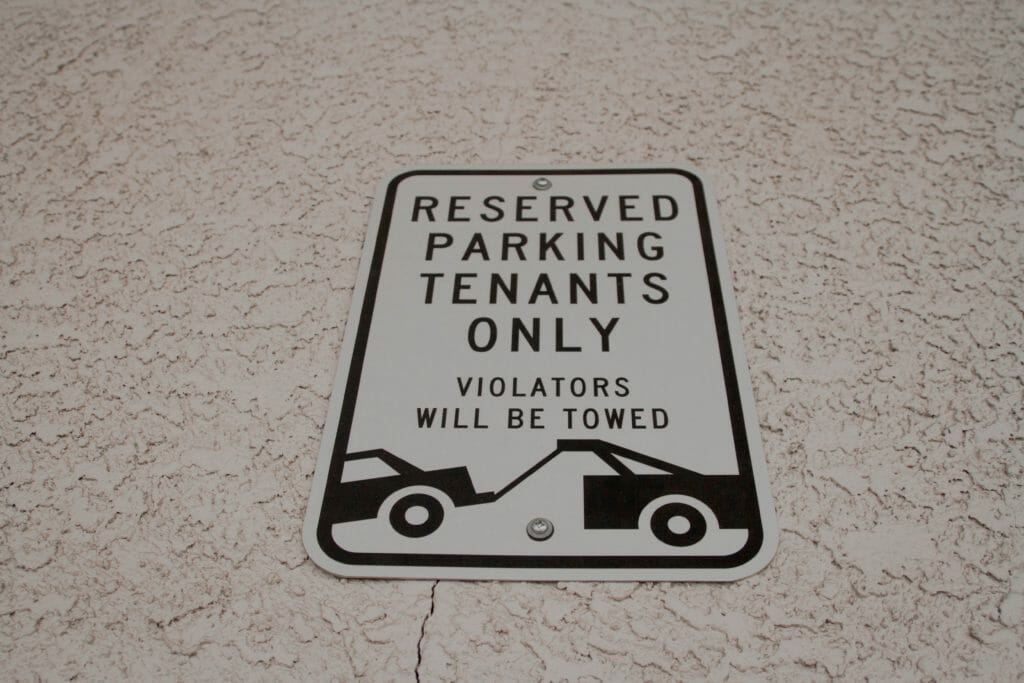Parking, pets, vehicles and storage. These are four issues that can create stress, frustration, and conflict for any condo community. When they become a problem, finding a resolution is generally not a clear or straightforward path, and some owners get to a point where they feel as though litigation is their only option.
In Ontario, the Condominium Authority Tribunal (CAT) is preparing to help condos resolve disputes about these issues so that fewer cases end up in court.
Table of contents
- What is the CAT?
- What’s the new change all about?
- Who can bring a dispute to the CAT?
- Looking forward
- Additional resources
What is the CAT?
The Condominium Authority Tribunal is Ontario’s first fully online tribunal. It uses an online dispute resolution system (CAT-ODR) to help people resolve certain types of condo-related disputes. The purpose of the CAT is to provide a streamlined dispute resolution system so that the courts don’t get weighed down with small cases about inconsiderate neighbours or repeat parking offenders.
What’s the new change all about?
On August 26, 2020, the Ontario government announced that changes to expand the jurisdiction of the CAT will come into effect on October 1, 2020.
Folger, Rubinoff, a law firm that specializes in condominium law, explains that the CAT’s jurisdiction had been limited to hearing disputes relating to requests for records, and the enforcement of settlement agreements from previous CAT cases.
However, beginning in October, the CAT can accept applications related to certain disputes about provisions in a corporation’s governing documents relating to:
- Pets
- Vehicles (including motorcycles, vans, trucks, trailers, boats and mobile homes)
- Parking and storage
- Indemnification or compensation charges (for charges related to disputes about the items above)
O. Reg. 179/17, which sets out the CAT’s jurisdiction under the Condo Act, is being amended to include these types of disputes, says Folger, Rubinoff. Currently, owners and condo corporations involved in disputes about parking or pets must go through mediation or arbitration, and sometimes seek the issuance of a compliance order before the Superior Court of Justice. That can be a costly and draining experience for all parties involved, and the CAT may be able to make the dispute process far less painful.
In short, the CAT is working well, so it is being given the authority to do more for condos.
Who can bring a dispute to the CAT?
Owners, mortgagees and condo corporations will be able to file applications with the CAT for disputes about provisions in a corporation’s governing documents that deal with cats, dogs, or other animals, vehicles, parking and storage, and/or related indemnification/compensation provisions.
The Condominium Authority of Ontario (CAO) has provided some examples of the types of disputes that owners and corporations will be able to bring forward.

Disputes about compliance with provisions in the corporation’s governing documents related to pets or other animals, vehicles, parking or storage, and/or related indemnification/compensation provisions.
- A corporation will be able to file an application against one or more owners if they have done something that goes against the corporation’s governing documents
- Similarly, an owner will be able to file an application against a neighbour, or multiple owners or occupants, for failing to follow rules in the corporation’s governing documents
Disputes about the consistency and/or reasonableness of provisions
- An owner will have the ability to file an application against their condo corporation if they think that one or more provisions in the corporation’s by-laws and/or rules relating to pets, vehicles, parking, or storage, is unreasonable and/or inconsistent with the Condo Act
- Similarly, an owner will have the ability to file an application against their condo corporation if the owner thinks that one or more provisions in the corporation’s declaration relating to pets, vehicles, parking, or storage, is inconsistent with the Condo Act
It is important to note that under the Condo Act, a corporation’s by-laws and rules are required to be reasonable. All three of the corporation’s governing documents must be consistent with the Act.
Disputes about the applicability of provisions relating to pets, vehicles, parking, storage, and/or indemnification related thereto.
- An owner will have the opportunity to file an application against their condo corporation if the corporation did not follow the correct process to implement or amend one or more of the corporation’s governing documents
Disputes about indemnification
- Condo owners and condo corporations will be able to file applications relating to provisions in a corporation’s governing documents that address indemnification or compensation related to the above-noted disputes
The CAT will not accept an application if the dispute does not deal with specific provisions in a corporation’s governing documents that address pets or other animals, vehicles, parking, storage, or related indemnification/compensation provisions.
Looking forward
The Condominium Authority of Ontario and the CAT are expected to provide additional details as to the procedure for filing applications on these new matters; there are still many questions that need to be answered. For example, it is still unclear if the CAT’s Rules of Practice will be updated to allow for legal cost recovery.
Such procedural considerations will be crucial as to how the CAT functions, and whether it can resolve these common disputes for owners and condo communities in a timely and efficient manner.
Additional resources
If you are a condo owner in Ontario who is currently experiencing an issue relating to smoking, pets, or noise, we advise you to check out the CAO’s Issues and Solutions webpage. Here you will find self-help resources that can help you address some of the most common issues that accompany condo living.
Conclusion
Condo communities offer a lot of perks and convenience, but with so many people inhabiting one concentrated area, conflicts are inevitable. The CAT hopes to help condo communities resolve common issues pertaining to pets, vehicles, parking and storage, in a more efficient and cost-effective manner.
At the very least, it offers some direction and assurance about what to do if you experience an ongoing issue, but don’t have the resources to take the matter to court. If this goes well, we could see the CAT take on additional applications for other common condo issues. We will share more updates as they become available.























